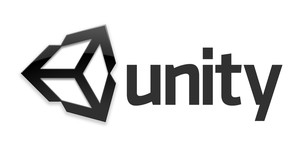Epic looks to cash in on Improbable, Unity spat
January 11, 2019 | 10:38
Companies: #bossa-studios #epic-games #improbable #spilt-milk-studios #unity

Engine-maker Unity and multiplayer specialist Improbable have come to blows over claims the former is trying to push the latter out of offering its United-based cloud gaming platform - and Epic Games has stepped forward with a view to snatching up those displeased by the move.
UK-based Improbable made a name for itself with the launch of SpatialOS, a platform which extends game engines including Unity for cloud-based massively multiplayer titles by running engine instances on remote servers. The startup has already enjoyed several industry wins, powering games including Spilt Milk Studio's Lazarus and Bossa Studios' Worlds Adrift. Its success, though, has not been welcomed by all: The company has been quietly fighting a battle with engine maker Unity over what the latter claims are breaches of its terms and conditions - and that fight came to a head late yesterday when Improbable claimed Unity had modified its terms of service to shut down all SpatialOS games, including those in production and already shipped.
'The game engine provider Unity recently changed (Dec 5) and then clarified directly to us (9 Jan) their terms of service to specifically disallow services like Improbable’s to function with their engine,' claimed improbable in a blog post on the matter. 'This was previously freely possible in their terms, as with other major engines.
'Overnight, this is an action by Unity that has immediately done harm to projects across the industry, including those of extremely vulnerable or small scale developers and damaged major projects in development over many years. Games that have been funded based on the promise of SpatialOS to deliver next-generation multiplayer are now endangered due to their choice of game engine. Live games are now in legal limbo. All customers who entered into a relationship with us and Unity previously did so on the good faith understanding that the terms they signed up to, sometimes years ago, would allow them to be successful and not carry additional charges.'
Unity, however, disagrees with Improbable's framing of the situation, and claims that anyone already using the company's platform won't have to shut their games down. 'Improbable published a blog post regarding their relationship with Unity earlier today. Improbable’s blog is incorrect,' Unity's Joachim Ante writes in a rebuttal. 'We terminated our relationship with Improbable due to a failed negotiation with them after they violated our Terms of Service. We’ve made it clear that anyone using SpatialOS will not be affected. Projects that are currently in production or live using SpatialOS are not affected by any actions we have taken with Improbable. If a game developer runs a Unity-based game server on their own servers or generic cloud instances (like GCP, AWS or Azure), they are covered by our EULA. We have never communicated to any game developer that they should stop operating a game that runs using Improbable as a service.'
For Improbable, though, the issue is far from academic: While its existing customers are, according to Unity, free to continue using the company's Unity-based platform, Improbable itself has had its licence keys to the Unity Editor deactivated - meaning it can no longer continue to develop on Unity, and its customers will receive no further updates. 'This is a unique case — and not a situation we take lightly — but Improbable left us no choice,' Ante claims. 'This was the only course of action to protect the integrity and value of our technology and Unity developers.'
Every cloud has a silver lining (bravo - ed.), and Epic Games has leapt into the fray with the formation of a $25 million fund, created in partnership with Improbable, which it claims will be provided 'to assist developers who are left in limbo by the new engine and service incompatibilities that were introduced today [and] help developers transition to more open engines, services, and ecosystems' - primarily, of course Epic's own Unreal Engine, which is a direct competitor to Unity.
Unity, for its part, continues to protest its innocence, with product manager Will Goldstone turning to Twitter to 'humbly ask for your assumption of best intentions - though I understand there will be some of you not up for that.'

MSI MPG Velox 100R Chassis Review
October 14 2021 | 15:04









Want to comment? Please log in.